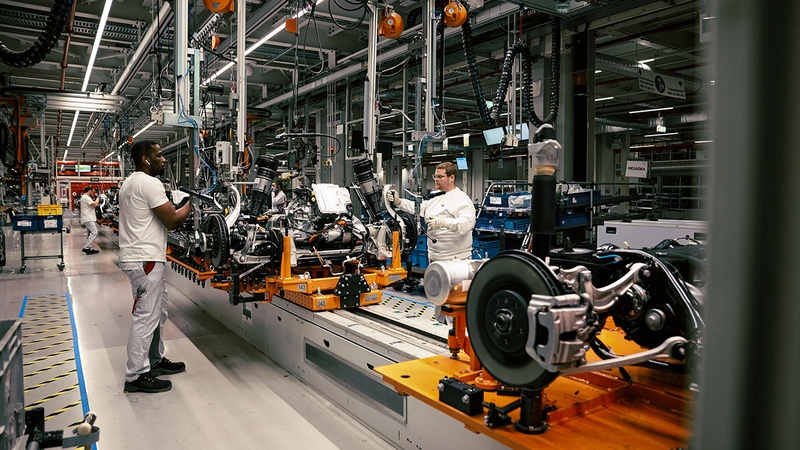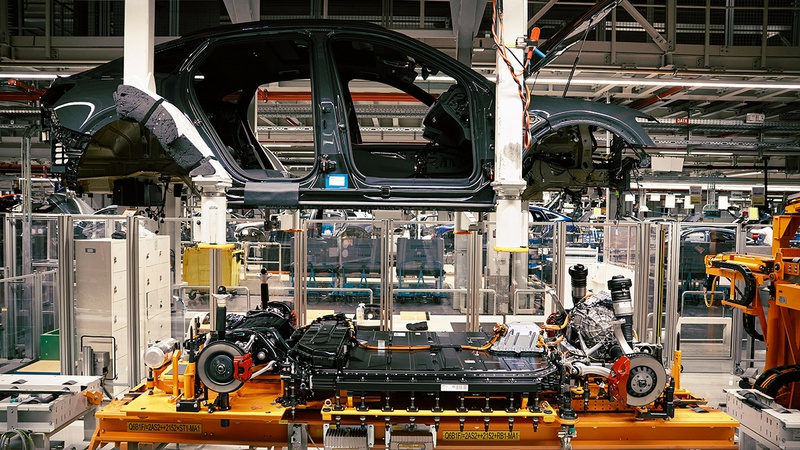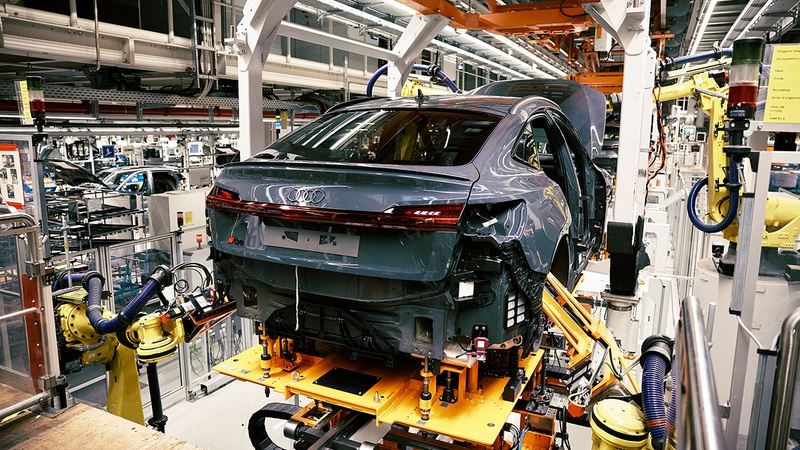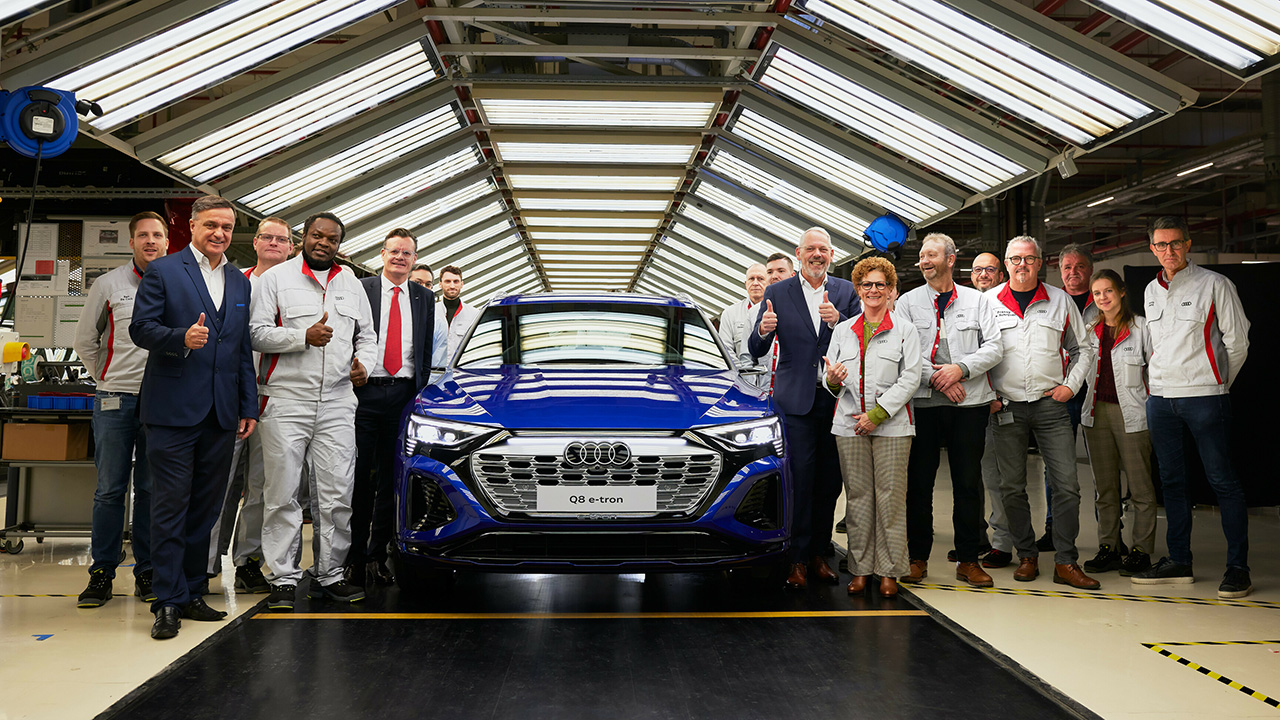Since 2018, the factory has built around 160,000 units of Audi's first production EV, the e-tron SUV. In 2021 alone, Audi Brussels made 43,866 all-electric e-tron and e-tron Sportback vehicles, which are the predecessors of the newly badged Q8 models.
Audi says the Brussels facility is a model for sustainability and implementing the future of production at the company, the so-called "360factory." The site has been recognized as the world's first certified carbon-neutral high-volume production plant in the premium segment since production of the Audi e-tron began in 2018.
Powered by green electricity since 2012, Audi Brussels installed one of the region's largest photovoltaic systems on the plant premises, covering 107,000 square meters (26.44 acres). The system generates around 9,000 megawatt-hours of power from sustainable energy every year, enough to charge some 90,000 Audi Q8 e-tron vehicles and reduce carbon emissions by 1,881 tons.



Furthermore, the companies that supply the battery cells are required to use only renewable energy sources for production, while the electric traction motors are transported from Györ, Hungary to Brussels by green freight trains; this helps reduce carbon emissions by around 2,600 tons annually.
Audi AG has owned the Belgium site since 2007. After acquiring it, Audi Brussels converted the plant to produce the Audi A1, a new addition to the Audi model range at the time. 2018 saw the birth of the Audi e-tron. In 2021, Audi Brussels produced 43,866 all-electric cars. Starting in the second half of 2023, more than 3,000 employees will also make the Audi Q4 e-tron here.
The new Q8 e-tron's offers better efficiency, improved aerodynamics, higher charging performance and increased to 115 kWh battery capacity. This results in an increased WLTP range of up to 582 kilometers (361 miles) in the SUV and up to 600 kilometers (373 miles) in the Sportback
Source: Audi

